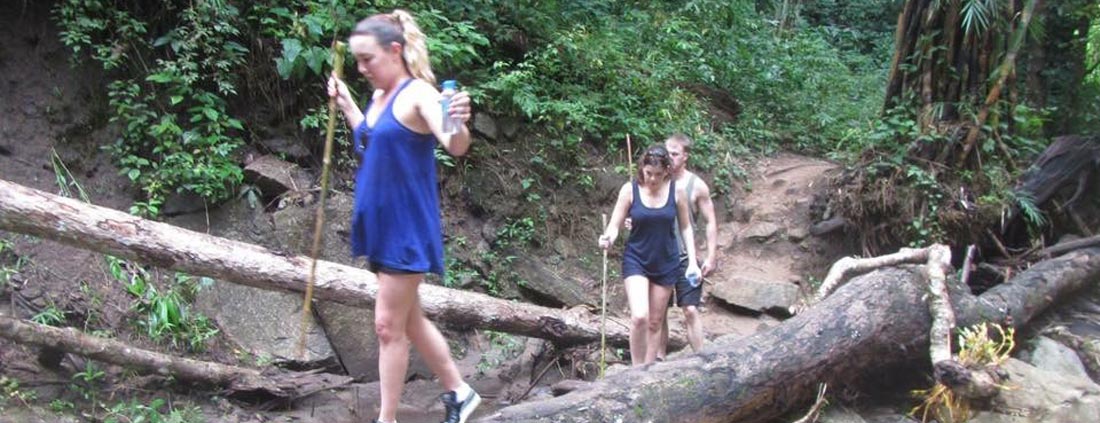Up until 5 years ago, I had never heard of diabetes, however as I sat in the doctor’s office, being told my test results, the sudden thirst and weight loss all started to make sense. However I strongly believe that an illness should never stand between you and your dream, therefore I packed my bags and jumped on a plane, searching for new adventures.
At the time I didn’t have a clue what to pack and what medicine I would need for an extended break abroad, while Google didn’t truly offer me the answers I seeked, therefore I’ve listed some of my main takeaway points from the last few years, in order to help others in similar situations:
Starting point
Go to your doctors and talk about how long you are travelling for. In some cases, they will need to give you more insulin to cover your trip.
I always bring a cooling pack to have my insulin in while on the plane. As soon as I go to the hotel/ hostel I put the unopen ones in the fridge and the one I’m using I keep in a cooling pack to keep safe.
Make sure you have packed extra needles and double the amount of insulin if you are going on a week or so holiday. Better to have more than less.
Always have a letter from your doctor explaining you have diabetes. Sometimes they make you pay for a letter so keep that in mind. Make a few copies of the note.
Travel insurance needs to include that you are diabetic. Notify the insurance brand you opt with before heading off on your travels.
If travelling in Europe, make sure you have a European Health Insurance Card (EHIC), although not sure how this will change with Brexit (I might need to update this section in a year or so). This entitles you to reduced-cost and, sometimes, free medical treatment.
Flying with diabetes
Always keep insulin supplies in your hand luggage. This is because airline travel can cause baggage to freeze and affect the insulin. If insulin must go into the hold it should be well insulated or housed in an airtight container if possible.
Let the people around you know you are diabetic. Even if it’s awkward or embarrassing, you just need to bite the bullet. Just in case you are traveling solo, if you are going on a trek, just let the guide know. I have my Medical ID filled out on my iPhone, so anyone can access this if I can’t talk and need medical care.
While travelling
When checking into your hotel always ask if they have a fridge, preferably a private fridge. I read a story of someone stealing the medication from the fridge, my heart goes out to them! If you want to be safe or have a feeling you might forget it when you move on to your next destination, leave a note on the fridge saying, ‘medication in refrigerator property of xxxx and please call on xxx if found’. If you don’t then you will need to leave your insulin in the hotel fridge. Make sure it’s written down somewhere, so the hotel can have a reminder as well. Always put a reminder on your phone when check out is to collect your meds.
You must keep a healthy diet while travelling, as your blood sugar levels can be affected by what you’re eating while out there. The heat and the cold can also play a significant factor on travelling with diabetes. Make sure to drink plenty of water.
I use pre – filled insulin pens and these can range from 7 to 28 days depending on the type of insulin. When the first insulin syringe punctures, the rubber stopper is considered open. Make sure to never leave the insulin pens out in the sun. I always bring cooling bag to keep my open insulin protected from the sun while traveling. You must always check that the insulin is clear, it should never be cloudy, have clumps or anything floating. If some are found, you should discard this insulin and seek local supplies. NPH and pre-mixed insulin on the other hand will be cloudy, but they shouldn’t have clumps or anything floating.
final points
- Take along snacks and glucose tablets on you always. Don’t assume you will be able to find food wherever you are. This happened to me on a 6-hour train from Rome to Venice, but luckily my hypo didn’t hit until we were arriving in Venice. I learnt a valuable lesson that day.
- it’s safer to avoid tap water overseas. This includes ice cubes made from tap water.
- Wear comfortable shoes and never walk barefoot. Always check your feet and find medical care if any signs of infection or inflammation.
- Being hungover and having diabetes can be hard. If I’ve drank far too much and the next day I feel sick and can’t eat, it’s not good news. I’ve had points of being so sick and suffering with a hypo, however what you can do is put sugar on your tongue. I would always say make sure you have eaten dinner and eat when you come back to your hotel. Drink a few pints of water that night and you will feel a lot better the next morning.
- Always change to fit the time zone you are in.
- Cover yourself with sun cream and don’t forget your feet and remember diabetics take longer to heal.


